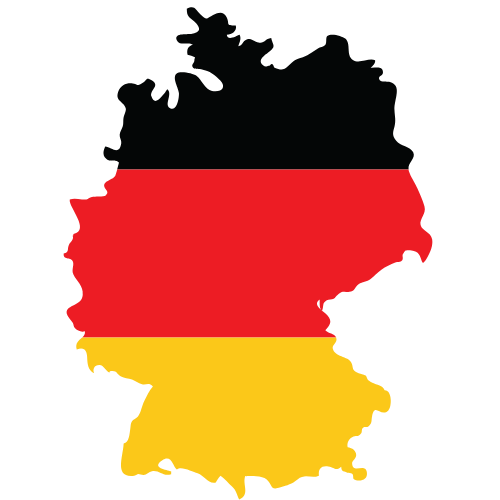Germany’s roadways are known for their efficiency and organization, and traffic signs in Germany play a significant role in maintaining this order. Whether you’re a tourist driving on the famous Autobahn or a local navigating city streets, understanding German traffic signs is essential for road safety and compliance with local laws.
Inhaltsverzeichnis
Categories of Traffic Signs in Germany
German traffic signs are divided into three main categories: regulatory signs, warning signs, Und informational signs. Each type serves a distinct purpose to guide and inform drivers and pedestrians.
- Regulatory Road Signs
- Warning Signs
- Informational Signs
- Traffic control devices
Regulatory Road Signs
Regulatory signs tell drivers what they must or must not do. These include stop and yield signs, speed limits, prohibitions, and mandatory directions. Stop signs require a full stop before moving forward. Yield signs mean giving way to other vehicles. Speed limit signs show the maximum speed allowed. Prohibition signs, like “No Entry” or “No Parking,” restrict certain actions. Mandatory signs indicate required actions, such as turning left or right.
Warning Signs
Warning signs help drivers prepare for hazards. They are triangular with red borders and white backgrounds. Symbols inside the triangle show specific dangers. These may include slippery roads, steep hills, sharp turns, or animal crossings. Paying attention to these signs helps prevent accidents.
Informational Signs
Informational signs guide drivers and make navigation easier. They include directional signs, parking signs, and motorway signs. Directional signs show routes and distances to towns or landmarks. Parking signs indicate where to park and any restrictions. Motorway signs provide details about exits, rest areas, and speed suggestions.
Traffic control devices

600 Barricade

605 Obstruction marker

610 Traffic cone

615 Mobile lane closure board

616 Mobile lane closure board with flashing arrow

620 Reflector guide posts (left, right)

625 Bend ahead

630 Parking hazard
Traffic signals in Germany are well-structured, following a familiar red, yellow, and green sequence. Yellow lights appear twice—before both green and red—to give drivers extra warning time. Pedestrian crossings have their own signals, marked by red or green figures, ensuring safe passage for walkers. In addition, Germany’s urban areas feature special traffic lights for cyclists and trams, which are separate from standard signals. These additions ensure smoother and safer navigation for all types of road users.
Tips for Understanding Traffic Signs in Germany
If you’re new to driving in Germany, these tips can help:
- Familiarize yourself with the most common signs before driving.
- Use navigation apps that highlight local rules and speed limits.
- Consider attending a driving course if you’re staying long-term.
Abschluss
Understanding traffic signs in Germany is crucial for safe and legal driving. Whether you’re a tourist or a local, prioritizing road safety and compliance with rules will make your experience more enjoyable. Take time to learn and respect these signs – after all, they’re there to protect everyone on the road.
Tip: Official Government Website for driving licenses in Germany
FAQ about traffic signs in Germany
1. What do blue traffic signs in Germany mean?
Blue signs typically indicate mandatory actions, such as specific directions or lane usage.
2. Are German traffic signs different from other European countries?
While similar in many ways, Germany’s signs are known for their clarity and unique Autobahn-specific signs.
3. What is the penalty for ignoring a stop sign in Germany?
Fines can range from €10 to €70, with potential points on your license.
4. Do German traffic lights have a different sequence?
Yes, yellow appears before both red and green lights, offering drivers extra warning time.
5. How can tourists familiarize themselves with German traffic signs?
Using guidebooks, online resources, or navigation apps with local traffic information can help.


